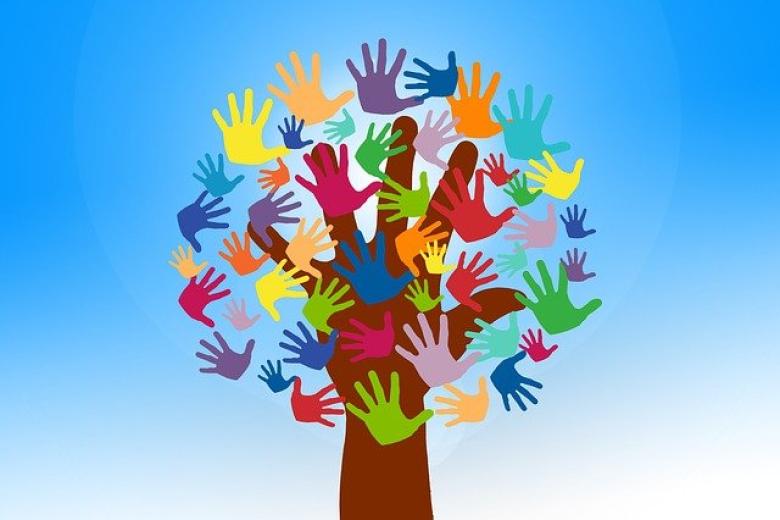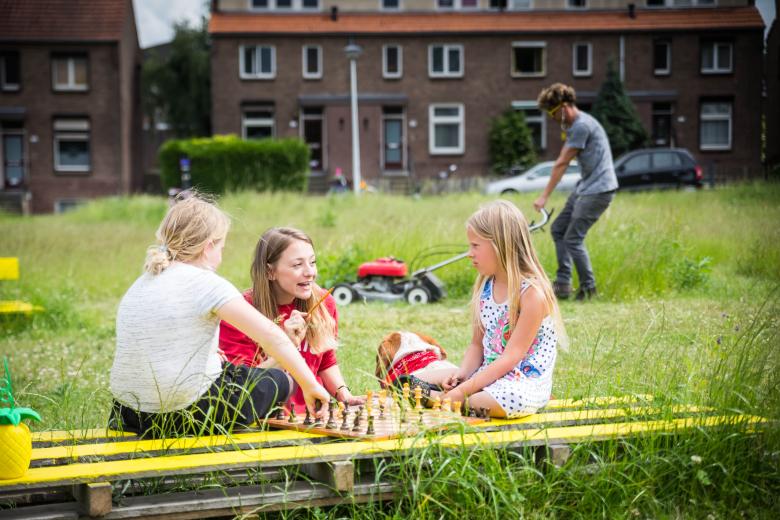Civic engagement and volunteering
The UM recognises the importance of voluntary work by students and therefore wants to support you in this. We facilitate you by offering you volunteering opportunities in our Personal & Professional Development Portal. Because we value your dedication and commitment, we award your participation with the digital edubadge Global Citizenship.
Information for voluntary organisations
The UM sees the importance of students connected to our community. They not only do good for others, organisations and society, but they also develop competencies that are important for their personal and professional development and wellbeing. Volunteering can help them to connect with new people, to get a sense of belonging and to integrate more into our community.
We also notice the struggle some organisations have with finding new volunteers and how to attract them. With our portal, we would like to support you and match interested students to your organisation.
Students who participate in volunteering tune in to the reality of the needs of people, organisations and society around them. This application to the actual questions of people, organisations, and society aligns with challenge-based learning, which invites and encourages them to apply and refine their competencies developed through PBL to relevant questions in non-academic settings. They learn to apply and refine their academically acquired expertise, competencies and skills to meet the challenges outside the academic setting in a worthwhile and sustainable way for themselves and their environment.
As an organisation, you can contribute. You support our students on their journey of self-development and teach them what community involvement is. This will benefit them throughout their whole lives. At the same time, our students will not only provide you with a pair of extra hands, but they will also come with new knowledge, energy, enthusiasm and fresh ideas. Connect our students with our community!
Register your organisation and find your new volunteers through the UM Personal & Professional Development Portal!

Information for student organisations
Some student organisations have activities and or committees that will meet the requirements. Students participating in these activities/committees can be eligible for the acknowledgement.
Before students from student organisations can ask for the acknowledgement, it is expected that student organisations have their activities approved by the UM first. If you are a student organisation, the board can request approval for your organisation's civic engagement activity by filling in this form and send it to volunteer@maastrichtuniversity.nl
Organisations up to five people
Some organisations are small and consist of fewer than six students. We understand that acknowledging each other can be very difficult in such a case. Therefore, the project team with the director of the Students Service Centre will approve participation for organisations with up to five students. The project team may ask additional questions for small organisations.
Frequently Asked Questions
What is in it for me?
We think you can help others with your skills, and that you could use a break from all those lectures and PBL sessions now and them. Say hi to personal and professional development! Of course volunteering is a plus on your resume, but you also get to meet new people and it makes you happier.
Can I combine it with my work or other activities?
Do you have an hour? That could be enough to help another person get ahead. In our portal, you find different activities and projects. Therefore, you spend exactly as much time as you want on the project that suits you best.
How does it work?
- At the portal you will find several Civic Engagement Activities where you can participate in. Apply and the organisation will contact you and make agreements with you.
- When you have finished the activity or participated for at least 28 hours, you write a reflection about your participation and your development.
- The organisation needs to approve your reflection form and therefore declares your active participation.
- After approval from the organisation, you can request the acknowledgement at UM.
- When UM recognises and acknowledges your civic engagement, you will receive a link to edubadge to claim your Global Citizenship badge.
When do I need to fulfil the activity?
You can start your participation whenever you and the organisation suits. You do need to participate for at least 28 hours within one calendar year, starting when you begin to participate in the activity.
I am a non-EU citizen. Can I volunteer?
Non-EU citizens always need a TWV (Tewerkstellingsvergunning) if they want to work in the Netherlands, including students. The employer must apply for the work permit, in this case the civic organisation. Please contact the organisation you want to volunteer at for more information.
I receive a reimbursement (vrijwilligersvergoeding) for my volunteer work. What does that mean for my taxes?
In the Netherlands, we have the volunteer scheme. This scheme has maximum amounts on which you do not have to pay tax. Above these amounts, you do have to pay tax. For more information, see the website of the tax authorities: Vrijwilligersvergoedingen (belastingdienst.nl)
Some countries do not have the volunteer scheme. For international students, it is important to know where you have to pay tax and how tax is regulated in your country.
What does the UM mean by positive social impact?
In general, positive social impact is about helping (more) people to a greater degree; a better expected well-being. More information about social impact can be found on: What is social impact? A definition - 80,000 Hours (80000hours.org).
You do not need to measure social impact. For the UM it is important that you think about what your participation in the activity means for the people/community you are helping.
I participated in an activity that meets the requirements for acknowledgement. How can I receive acknowledgement for this activity?
When your participation in CEA meets the requirements, you can be eligible for acknowledgement. Please contact us via volunteer@maastrichtuniversity.nl
I receive financial support for administrative months. Is that considered salary and can I therefore not get Global Citizenship acknowledgement?
The administrative months are paid as compensation for any study delay and the extra costs it entails. It is therefore not a salary. If your board year otherwise meets the conditions then it can qualify for recognition as an activity.
I have participated in several CEA that meet the requirements. Will I get a different badge?
There is one type of badge issued for CEA. The badge can be personalised by adding a narrative. In the narrative, you can indicate what you did, what you developed and for how many hours. This can make it clear that these are different activities. You can obtain a maximum of five Global Citizenship badges.
